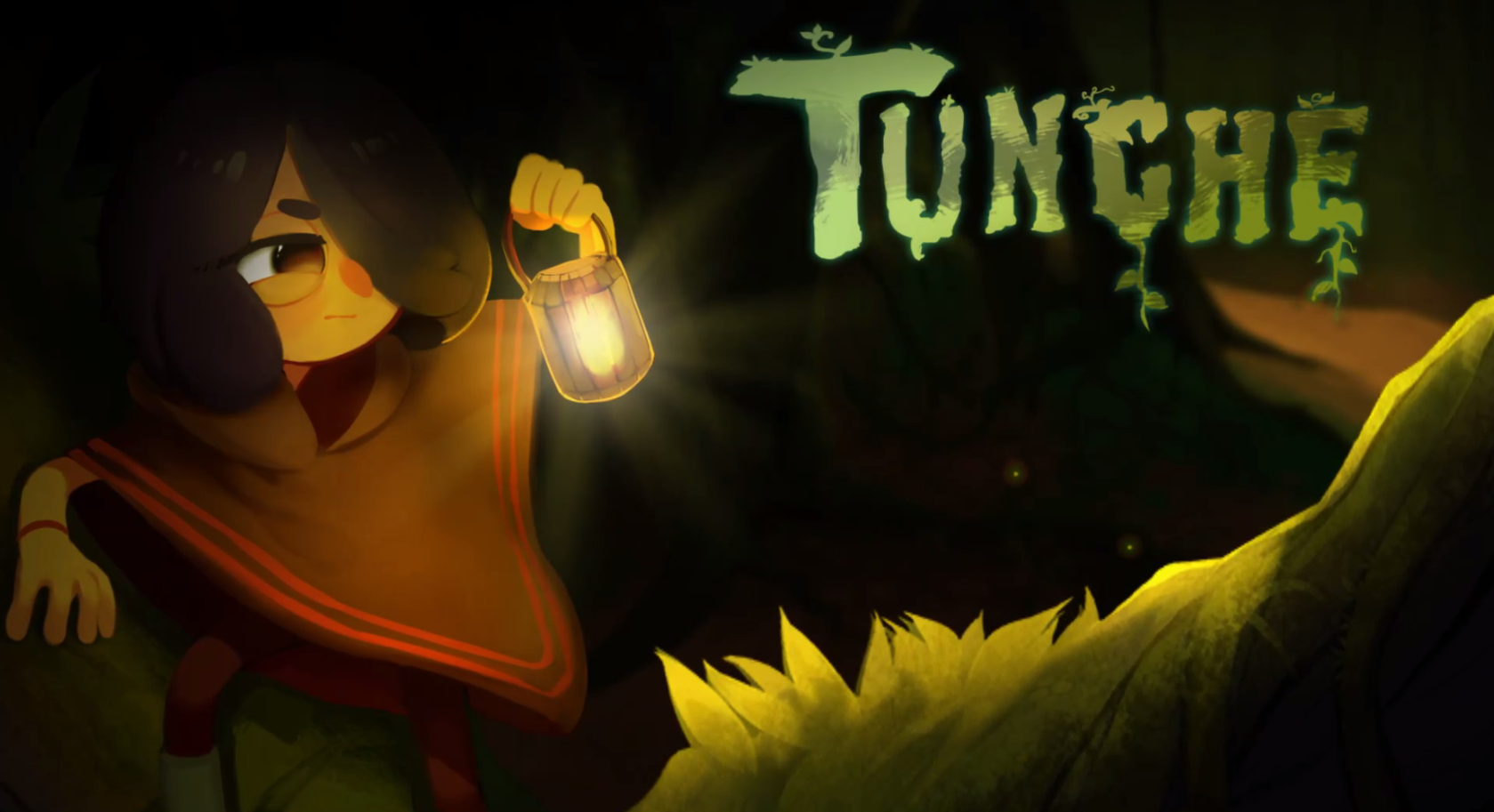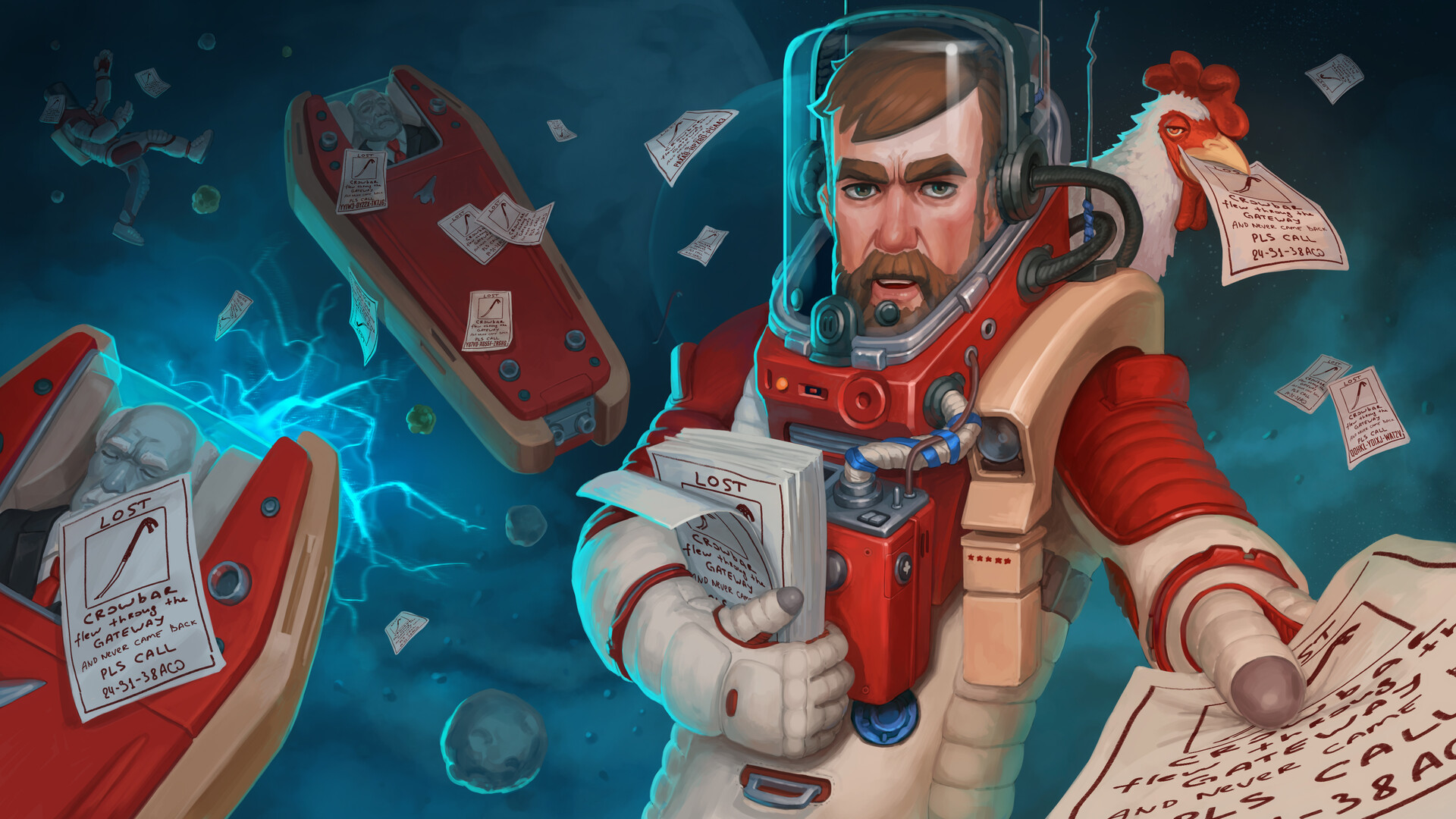Tunche Review (PC) – And The Beat Goes On…And On
Can Tunche enter the crowded roguelike field and make its mark? The Finger Guns review.
We need more games from South America. No, I don’t mean games from Western developers that pay lip service to the region – the Tomb Raiders and the Uncharteds of the world, which use the pretty architecture and exotic flora and fauna as the backdrop to their melodrama and violence. I mean games from developers who live in the region; who understand the history and the lore and know how to present it.
Enter Peruvian developers LEAP Game Studios who bring us Tunche, a roguelike side-scrolling beat-em-up which tells the story of five young adventurers (including HatKid, who some of you may recognise from 2017 platformer, A Hat In Time) who are seeking to travel deep into the Amazonian rainforest to find El Tunche, a demon that wanders the region. Along the way, you’ll encounter a number of characters there to both help you (who will find their way back to the camp which acts as your hub world) and hinder you (ranging from the small toad-like creatures that represent the game’s fodder to the screen-fillers that represent the game’s bosses).
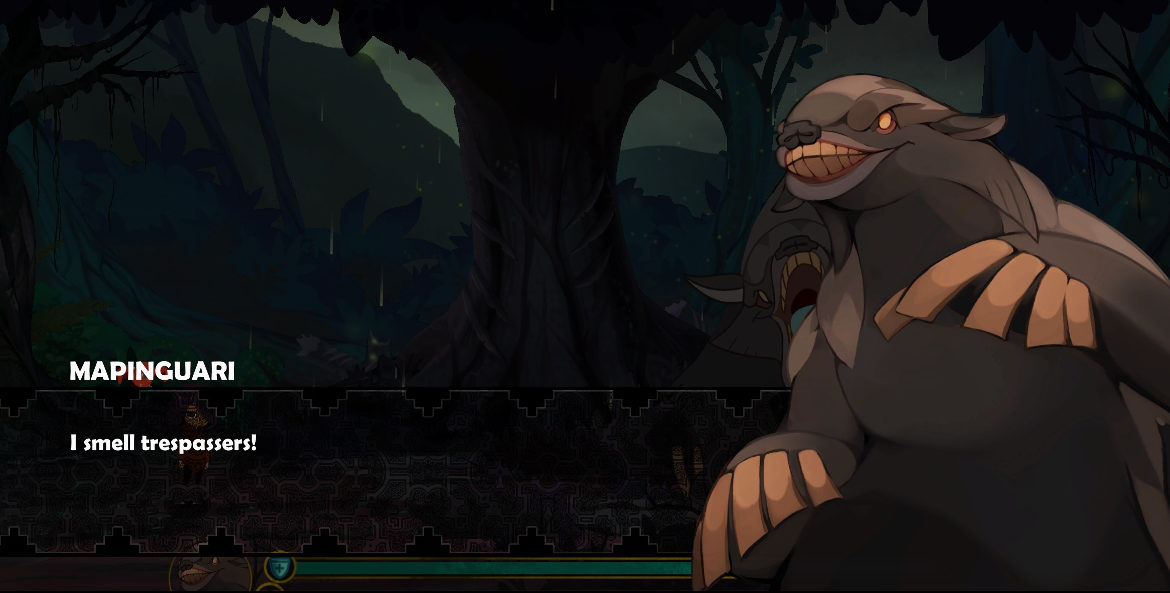
And it’s in the design of these creatures, the protagonists and the locales they do battle in that Tunche truly shines – this is a fantastic looking game. The hand-drawn animation style is pitch-perfect, giving the whole thing a wonderfully cartoon-like quality which just further draws you into the world LEAP have created. Every character has been imbued with tons of, well, character – even down to the aforementioned fodder, which winces in a hilariously over-exaggerated way with every hit. The immersion is further intensified by an excellent soundtrack, which perfectly captures the Latin American tone and makes for a cohesive aesthetic whole.
However, scratch beneath Tunche‘s admittedly gorgeous surface, and you’ll quickly find a less pretty picture. You see, ultimately, Tunche‘s main issue is one of repetition. Of course, that repetition is at the core of the roguelike genre, so some level of it is to be expected. However, whereas something like Hades breaks that repetition with a rich story, excellent dialogue and a wealth of ways to approach each run, Tunche too often feels like a grind in comparison.
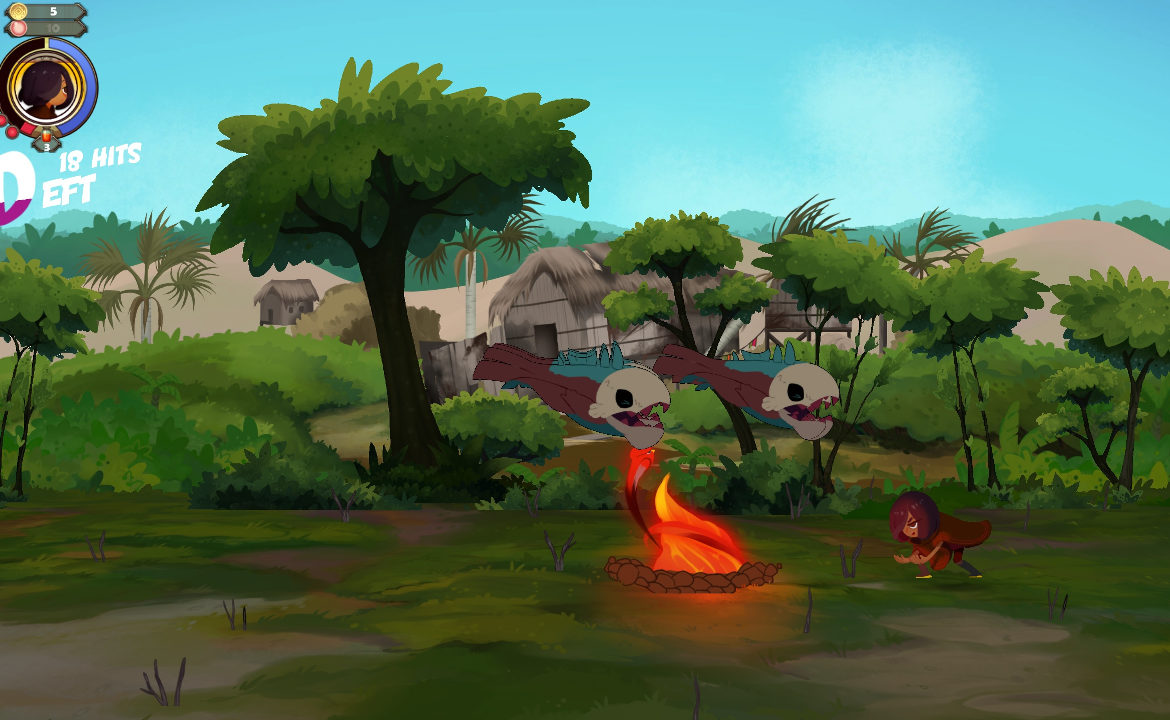
This is, in part, down to the nature of the game – side-scrolling beat-em-ups aren’t exactly known for their plethora of moves, after all. And, to Tunche‘s credit, some of this is mitigated by having five characters – each with different abilities – to choose from. However, it’s also difficult to get away from the fact that locales lack variety and, more egregiously, even the most standard enemies are damage sponges. This has the unfortunate effect of making even early skirmishes feel much longer than they probably should be.
Tunche attempts to alleviate some of this repetition by implementing a Devil May Cry-esque style system, whereby carrying out more varied and complex combat sequences sees you earn a higher rank, with that ever-elusive S-rank the ultimate goal. Sadly, the limited moveset available to each character means that trying to achieve such a rank is more effor than it is worth.
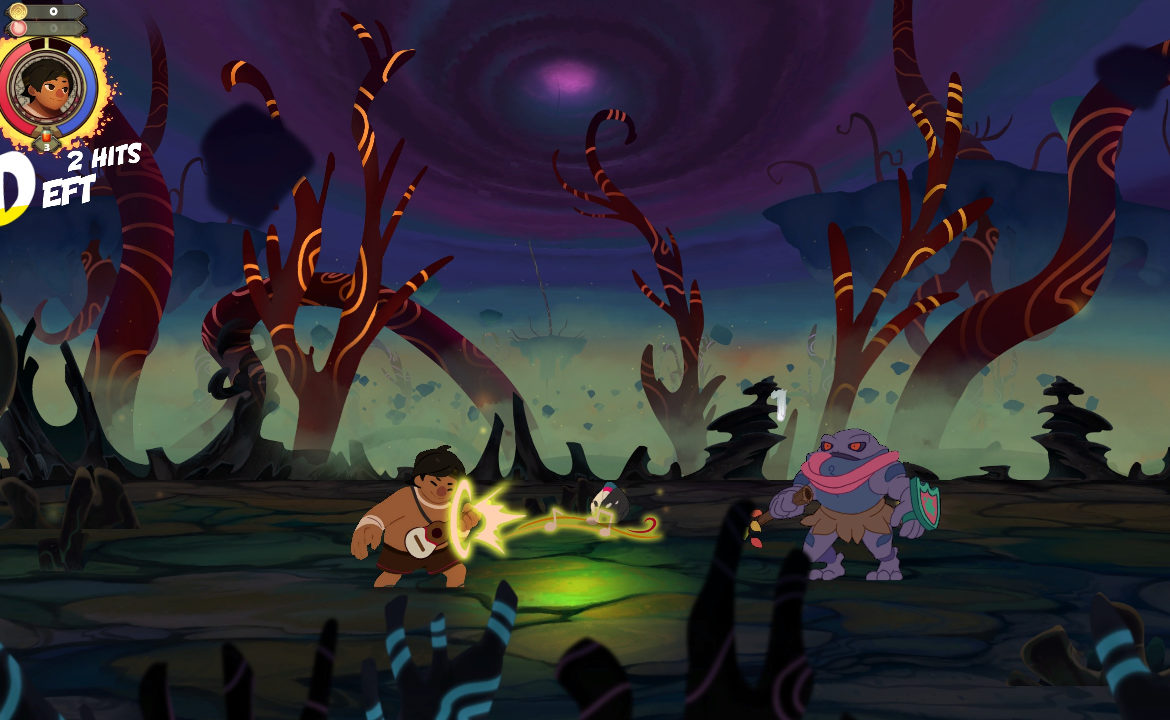
Even the roguelike elements don’t quite hit the way the best examples of the genre do. Yes, there are skill trees and there are different currencies to spend on abilities to ensure you’re better equipped for the next run. Sadly though, none of the abilities you can gain are terribly exciting or unique. For a game that trades on its vibrancy and rich magical lore, it’s somewhat underwhelming to see so little in the way of screen-filling special moves, for example, and few of the abilities I gained actually made me feel like I was any better equipped to tackle the tougher later stages.
I did also run into one particularly infuriating technical issue, where one enemy died but remained on screen, therefore preventing me from moving onto the next area, and forcing me to abandon my run. Thankfully, it was a fairly early into the run, which meant I lost little, but the mere thought of that happening deep into a run was enough to make me pause before starting another.
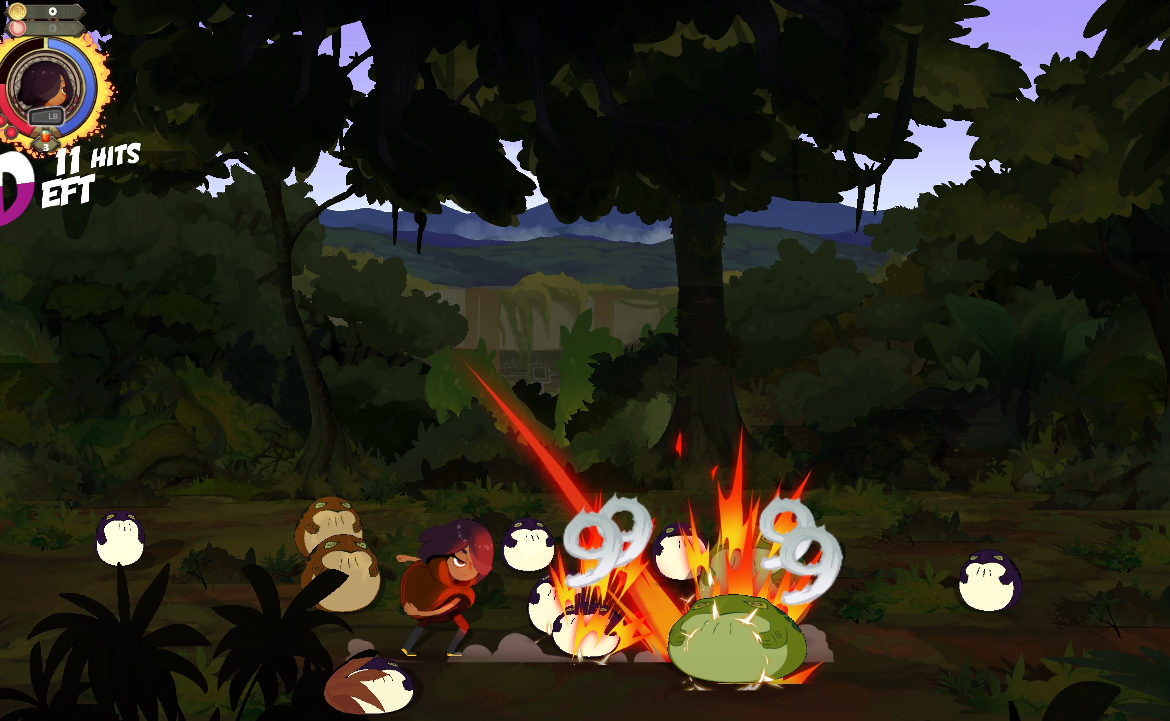
It’s a real shame that Tunche‘s gameplay doesn’t quite match up to its aesthetic, as there’s a lot to like here. The balance just never feels quite right and the lack of gameplay diversity actively drove me away from experimenting with different approaches, given the minimal difference I felt when trying to do so.
With a terrific hand-drawn style, an intriguing premise (inspired by a rich vein of criminally under-represented folklore), and solid controls, Tunche does a lot right, but it’s also a game that saves too much of its good stuff for the later stages, which is likely to drive away many looking for more instant gratification. With a more gentle introductory curve in the early stages and more rewarding incentives for progress, Tunche could be the next Castle Crashers, especially if you can rope some mates in. As it stands, it might be too much of a slog at the start to stick with, in order to see the good stuff further in.

Tunche is available on PC (review platform), Nintendo Switch, and PlayStation and Xbox platforms.
Developer: LEAP Game Studios
Publisher: HypeTrain Digital
Disclaimer: In order to complete this review, we were provided with a promotional copy of the game. For our full review policy, please go here.
If you enjoyed this article or any more of our content, please consider our Patreon.
Make sure to follow Finger Guns on our social channels – Twitter, Facebook, Twitch, Spotify or Apple Podcasts – to keep up to date on our news, reviews and features.
